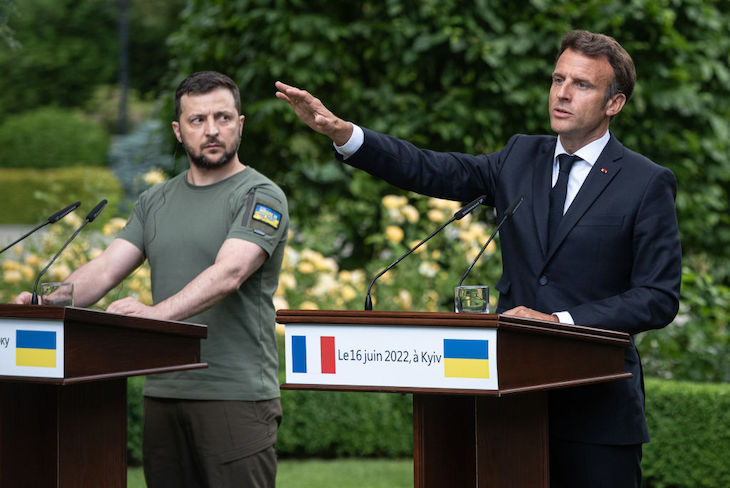If one story dominates the cacophony of results of the European election from across the 27 countries of the Union, it is the defeat of incumbents in the EU’s largest member states: France and Germany. While their underperformance was expected, its aftershocks risk leaving Europe weak and ineffectual in the face of Russian aggression in Ukraine.
It is hard to see how Macron or Scholz will become bolder in their Ukrainian positions in the coming months
In France, president Emmanuel Macron responded to the poor performance of his party, Renaissance, by calling a snap election for 30 June – less than two weeks before Nato’s summit in Washington.
The logic of his decision is simple: it is better to confront the National Rally (RN) of Jordan Bardella now than in 2027. Because of a higher turnout and a different voting system disadvantaging controversial and extremist candidates, Macron is hoping for one of two scenarios.

Get Britain's best politics newsletters
Register to get The Spectator's insight and opinion straight to your inbox. You can then read two free articles each week.
Already a subscriber? Log in






Comments
Join the debate for just $5 for 3 months
Be part of the conversation with other Spectator readers by getting your first three months for $5.
UNLOCK ACCESS Just $5 for 3 monthsAlready a subscriber? Log in